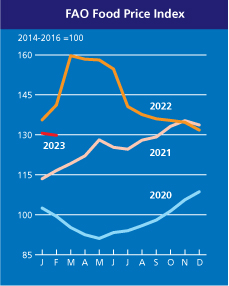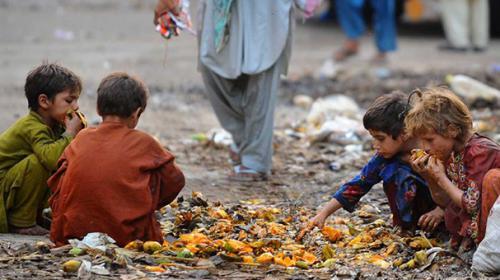Experts participating at the Noble Peace Laureates Alliance in Rome, have declared that peace is impossible without food security, reports NaijaAgroNet.
Leading discussion on this was the Communications Director, at the Food and Agriculture Organisation (FAO), Enrique Yeves said, in his introduction to the session on, "Perspectives for Integral Disarmament" that freeing the world from hunger is essential if “we want to build long-lasting peace."
After steadily declining for over a decade, he noted that global hunger is on the rise again, affecting 815 million people in 2016, or 11 per cent of the global population.
“At the same time, multiple forms of malnutrition are threatening the health of millions worldwide,” he said.
The increase, he emphasized has reached 38 million more people than the previous year, which is largely due to the proliferation of violent conflicts and climate-related shocks.
Rural areas and their populations, FAO officer said, have continued to be the most affected by conflicts, as attacks on farming communities undermine rural livelihoods and displace people from their homes
"Just as conflict leads to hunger, hunger can also lead to conflict," Yeves said, stressing that peace is a prerequisite to achieving food security and ending this "vicious circle."
Further, the FAO Communications Director warned that conflict has driven northeast Nigeria, Somalia, South Sudan and Yemen to the brink of famine and triggered acute food insecurity also in Burundi, Iraq and elsewhere.
He noted that 489 million of the 815 million chronically food-insecure and malnourished people in the world live in countries affected by conflict.
Expressing optimistic that agriculture is part of the solution, he cited for instance that over 75 per cent of the world's poor and food insecure depend on agriculture and natural resource-based livelihoods, in conflict situations, agriculture and food security can give new life to affected homes and communities, bringing people together and driving recovery.
"The right mix of humanitarian aid and rural development can set the foundations for rebuilding livelihoods," he said.
Isaac Oyimah/GEE
... Linking agrobiz, sustainable environs, people & technology





















